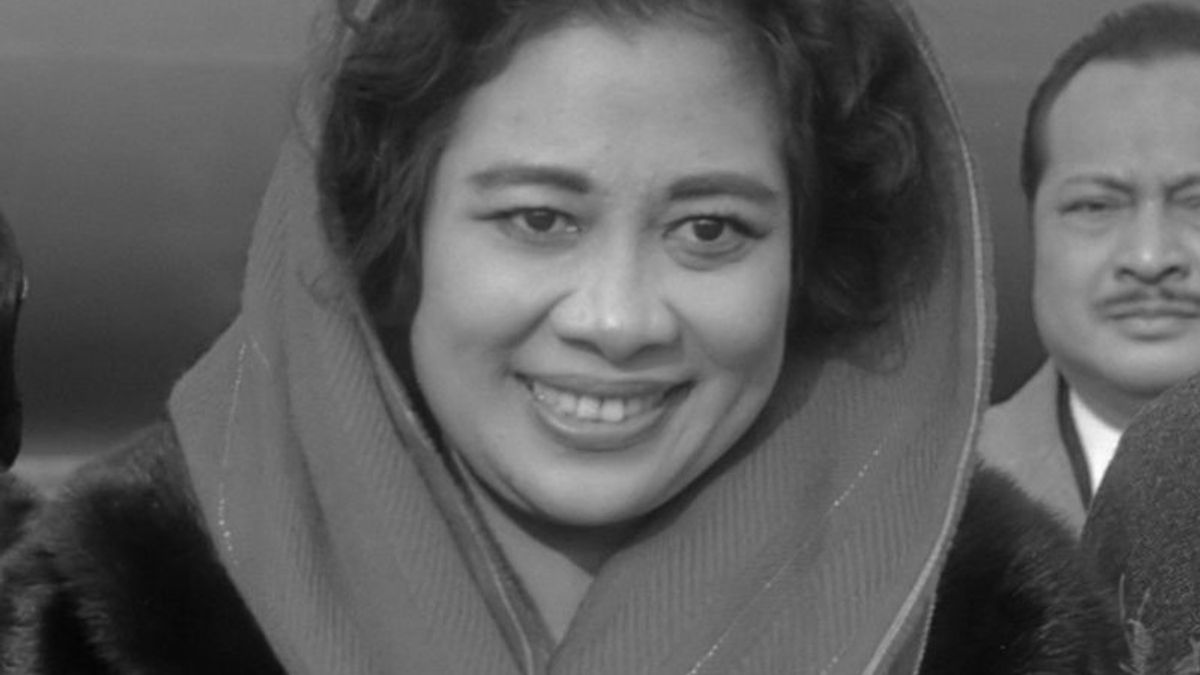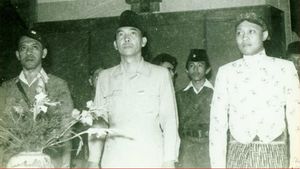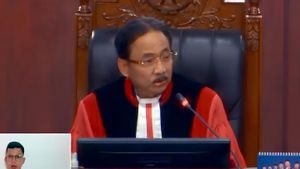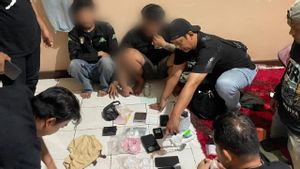JAKARTA - The struggle for Indonesian independence is not an easy matter. It took more than just taking up arms to be free from the shackles of colonialism. The phase of determining the basis of the state, for example. The nation's leaders went through a series of debates because of it. The Pancasila was finally echoed by Bung Karno. The birth of the five foundations of the Indonesian state was greeted with enthusiasm and thunderous applause. Fatmawati did not want to be left behind. He became one of the witnesses of the birthday of Pancasila on June 1, 1945.
The presence of the Investigative Agency for Preparatory Work for Indonesian Independence (BPUPKI) was an important period in the nation's history. The agency that was formed by the Japanese government became an extension of the Bumiputra's hands for independence.
The task of BPUPKI is clear. They provide assistance or support so that Indonesia will soon be free from the shackles of colonialism. The Bumiputras did not waste this opportunity since the first BPUPKI session, 29 May – 1 June 1945. In turn, the national leaders proposed the basic formulation of the state. From Mohammad Yamin to Soepomo.
Soekarno did not want to be left behind. Bung Karno expressed his thoughts regarding the state's foundation on the last day. Alias June 1, 1945. He revealed the five basics of the state. First, Indonesian nationality. Second, internationalism or humanity. Third, consensus or democracy. Fourth, social welfare. Fifth, cultured divinity. Pancasila, the name.

The name was given by Soekarno according to the advice of a linguist (most likely: Asmara Hadi). Bung Karno considered the term Pancasila to be more appropriate than using other terms, such as Panca Dharma. This is because Pancasila contains the principle of an everlasting independent Indonesia.
"Brothers! State Fundamentals I have proposed. Five numbers. Is this the Five Dharmas? No! The name Panca Dharma is not appropriate here. Dharma means obligation, while we are talking about basics. I love the symbolic. Symbolic numbers too. There are five pillars of Islam. We have five fingers. We have the Five Senses. What else is five in number?”
"There are also five Pendawa. Now many principles; nationality, internationalism, consensus, welfare and divinity, five in number. His name is not Panca Dharma, but - I named it with the advice of a friend of ours, a linguist, his name is Pancasila. Sila means principle or basis, and on these five principles we have established the State of Indonesia, which is eternal and eternal," Soekarno said in his speech.
Fatmawati Becomes an Eye WitnessThe event of the birth of Pancasila is the most important part in the history of the nation. Fatmawati also agrees with that. He also witnessed the birth of Pancasila at the last BPUPKI meeting at the Tjuo Sangi In Building, Jakarta on June 1, 1945. However, Fatmawati did not expect the incident.
She revealed that her husband, Soekarno, did not have an agenda to attend large meetings. Moreover, Bung Karno has not told many things related to the BPUPKI meeting. Fatmawati also asked when Bung Karno invited her to the Tjuo Sangi In Building the next day.
Fatmawati was skeptical. He asked Bung Karno himself. The pinnacle of being loved by scholars arrived. Fatmawati got an answer. Soekarno revealed that he would deliver an important speech related to the state's foundation.
The long awaited day has arrived. Arriving at the location, Soekarno and Fatmawati chose to separate themselves. Bung Karno sat with other fighters. Fatmawati was sitting among the other invited guests.

Bung Karno's turn to deliver a speech arrived. Fatmawati revealed Bung Karno's speech without text. A fiery speech. It was in that speech that Bung Karno outlined one by one of the five precepts. The roar of applause incessantly accompanied his speech. Especially when Big Brother finished his speech.
“Bung Karno finished his speech, then with a thunderous sound, all members of the assembly clapped loudly; as well as out of satisfaction, the reporters' cheers were heard inside and outside the building."
"After the trial we both went from the room to Bung Karno's car asking: how was Mas's speech, Fat? It was great, I replied. Bung Karno looked very satisfied. Shortly after we arrived we went straight to the nursery to see our son Guntur who was still a baby, then pray dzuhur, then go to the dining table for lunch. That afternoon Bung Karno with a beaming face ate very voraciously, "said Fatmawati in the book Little Notes with Bung Karno (2016).
The English, Chinese, Japanese, Arabic, and French versions are automatically generated by the AI. So there may still be inaccuracies in translating, please always see Indonesian as our main language. (system supported by DigitalSiber.id)









